When it comes to the long-term and nearly foolproof storage of food, freeze-drying is hard to beat. Freeze-drying technology can be used on all kinds of food to yield a shelf life of 10, 20, or even 30 years at room temperature stored in a mylar bag.
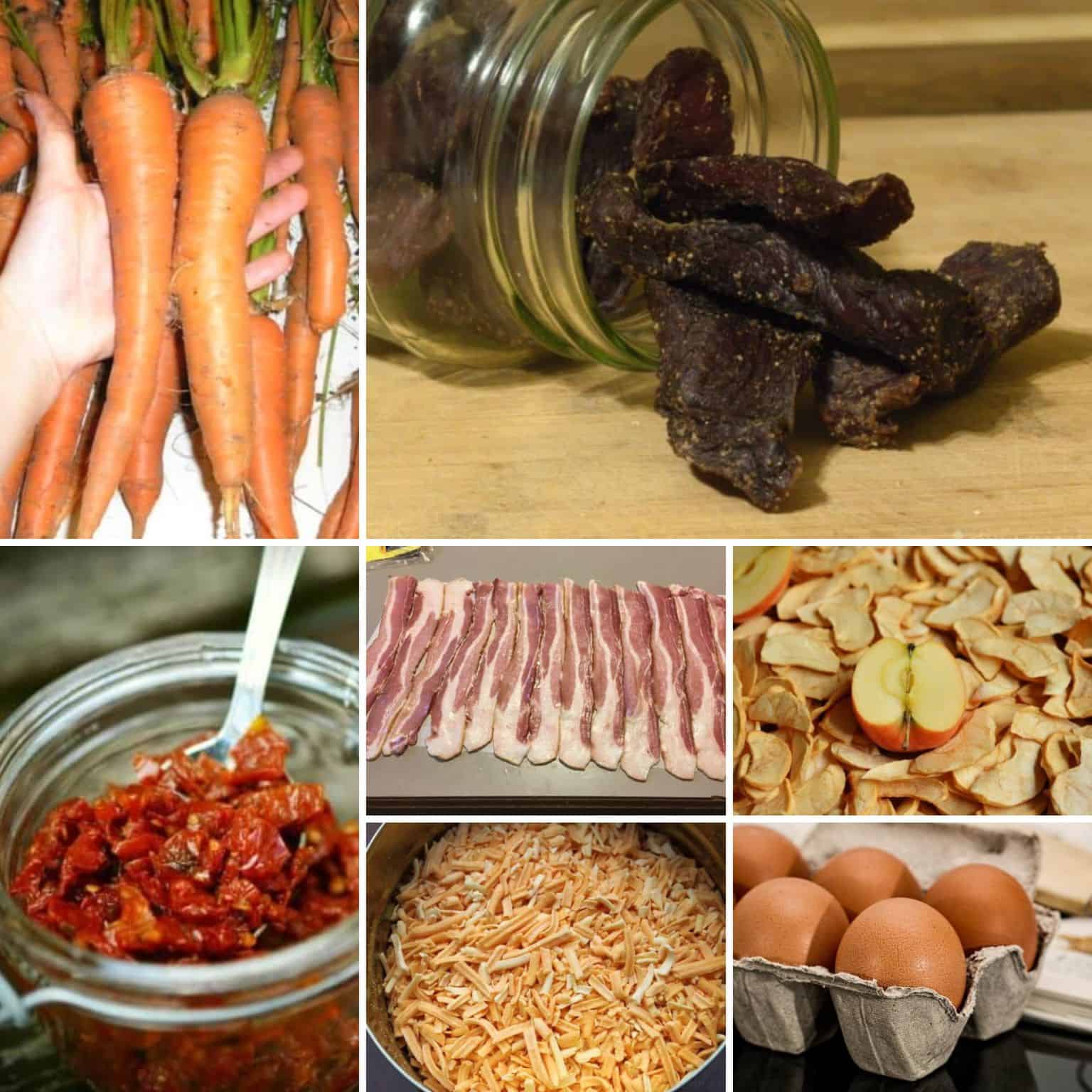
Very few other foods in any kind of processed or natural state can boast of that kind of longevity.
Unless you want to be constantly rotating a large stockpile of food until the very day you die, freeze-drying is the way to go.
The second best thing about freeze-drying is just how adaptable it is as a method of preservation.
You can freeze-dry meats, vegetables, fruits, dairy products, and a whole lot more. But as good as the technology is you can’t use it on everything.
In this article, we’ll be telling you about 69 foods that you can freeze-dry with great results and 12 that you should pass on.

You Can Freeze-Dry Most Foods
By now, most of us are probably familiar with some freeze-dried staples that tend to pop up with regularity.
Most of us have a favorite breakfast cereal that might have freeze-dried fruits or little marshmallows in it.
Maybe there’s a cup of instant noodles that you particularly like; that has freeze-dried vegetables in it, and the noodles themselves might be freeze-dried!
Truly the sky is the limit. You can even freeze-dry things you wouldn’t necessarily expect, like choice cuts of meat, dairy products, and all sorts of other liquids including juices or even blended smoothies. It sounds a little crazy, but it’s true.
If you’re thinking about pulling the trigger on a home freeze-dryer, this is great news because you aren’t going to be limited to making fruit slices and rock-hard beef jerky with it.
In fact, a freeze-dryer is so versatile it can completely replace several other methods of food preservation that you might otherwise depend on such as canning.
But, as I said above, they can’t handle absolutely everything that you might stick in there, and it’s best you learn what they are while you’re here.
Highly Oily or Fatty Foods Don’t Freeze-Dry Well
Probably the number one thing to keep in mind when it comes to freeze-drying is that the process itself is not particularly suited to foods that are extremely oily or fatty.
There are some exceptions, of course, but the way the process ultimately works is by sublimating frozen water out of the food you put in the machine, reducing its moisture content to nearly zero. Hence the term freeze-dry!
But when it comes to fats and oils in certain kinds of food, this sublimating process does not work or does not work reliably.
This can cause some foods to come out very strangely or even fail to preserve them entirely by retaining too much moisture.
This is one of those things you’ll have to learn as you go, because as I mentioned there are exceptions and some foods that might seem like a “no way” but are actually possible, and some foods that seem like a sure thing are a really bad idea.
I’ll mention those when we come to them. Now, let’s get to the list.
69 Things You Can Freeze-dry
Meats
You can freeze-dry most meats, raw or cooked. If raw, you’ll need to rehydrate them prior to cooking when taking them out of storage.
1. Pork
Pretty much all pork can be safely freeze-dried. Like most meats, you want to cut it into smaller cubes or thin strips and freeze it prior to putting it into the freeze-dryer.
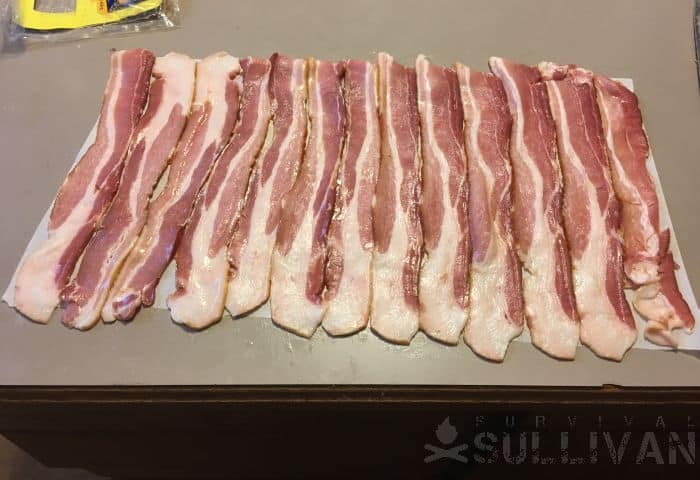
2. Bacon
Bacon can be freeze-dried, but seems to work best when it is cooked because this renders most of the fat off of it. Fatty foods, as mentioned above, can sometimes be troublesome in a freeze-dryer.
3. Sausages
Sausage is another surprising but great candidate for freeze-drying. Stick with thin patties or crumbles for best results. Sausage links can be a little dodgy.
4. Turkey
Turkey freeze dries wonderfully. Cut a breast into thin strips or shred the turkey into rough but equally sized pieces prior to the process.
5. Chicken
As you might expect, chicken does wonderfully in the freeze-dryer. Thin strips, cubes or chunks all work well so long as they are of about equal size.
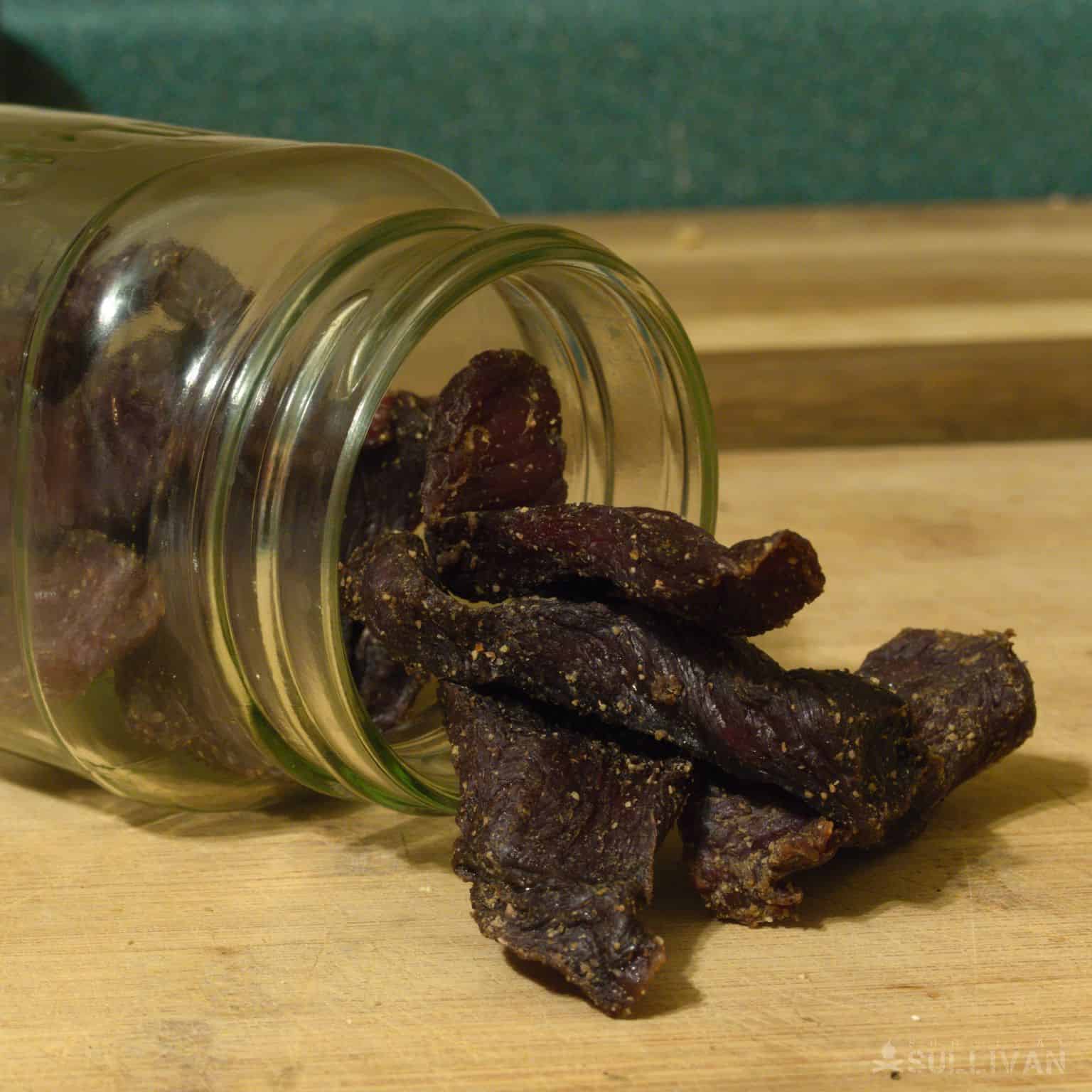
6. Beef
Beef is one of my favorite freeze-dried meats because it is generally reliable and predictable. A cooked freeze-dried steak makes for a very convenient and delicious meal in the future!
7. Ground Meat
Any meat that is okay to freeze-dry will work well enough when it is ground as opposed to cubes, steaks, fillets or what have you. If you are leaving it raw, trim off most of the fat prior to grinding if you can.
8. Fish and Seafood
Fish works surprisingly well when freeze-dried. At first glance it seems too delicate, but it holds up surprisingly well.
Vegetables
Most vegetables do just fine in the freeze-dryer, and some do exceptionally well as ready to eat snacks or toppings for other dishes.
Close control of sizes is key here: it is easy to give them too little time or leave them in too long which can spoil the results.
Keep all of the portions as close as you can and it should turn out great.
9. Tomatoes
Tomatoes turn into savory crisps when freeze-dried. When cut, they dry out very quickly normally, so leave your slices a little thicker before loading them into your freeze-dryer. Too thin and they might waste away to nothing!
10. Lettuce
Lettuce can be freeze-dried, but the success of the operation depends on the type of lettuce.
Heartier lettuces like bib or butterhead do better, whereas your thinner types like iceberg can sometimes turn to dust when freeze-dried.
11. Kale
Kale is a nutritional powerhouse, and also a great candidate for freeze-drying.it will shrink dramatically, but still contain more than 90% of its nutrients when raw.
12. Peas
When freeze-drying peas, expect them to take a little longer than their size would suggest. Their skins help them hang on to moisture and this can impede the process.
Consider it freezing them before freeze-drying to improve consistency and speed things up a little bit.
13. Carrots
Carrots are another surprising option for freeze-drying, and they don’t lose too much mass considering how firm and woody they are. Be warned, freeze-dried carrots can be quite hard!
14. Celery
Celery seems like another curious vegetable for the freeze-drying process considering it is mostly water already. It will shrink up a ton, and often turns into a soggy, limp mess when trying to rehydrate it. Rehydrated slowly in a humid environment it does okay.
15. Broccoli
When dehydrating broccoli, try to cut the florets into similarly sized slices vertically rather than leaving them whole. This will help ensure uniform and complete drying.
16. Avocado
Surprise! Even though avocado is fatty and somewhat oily it freeze-dries well. Cut it into uniform slices vertically, as close as you can anyway since it is so soft.
17. Asparagus
Another woody vegetable, asparagus can be freeze-dried easily enough. Try to keep the stems and head about the same overall diameter and you shouldn’t have any issues.
18. Onion
Onions can be freeze-dried wonderfully, and turn into little morsels that pack in a ton of flavor. Great for adding to soup or dip mixes.
19. Corn
Loose corn kernels will easily freeze-dry. Lay them out on the tray in a single layer. Easy as that.
20. Mushrooms
Mushrooms, sliced uniformly and laid flat, will easily freeze-dry. Be advised that depending on the type of mushroom they might become quite brittle in the process. You’ll need to experiment with your freeze and drying times for best results.
21. Spinach
Spinach is a surprisingly good candidate for freeze-drying like some other leafy vegetables we have mentioned. The trick is portioning and placing it so that it will all dry uniformly.
22. Peppers
Sliced or cubed peppers work great in a freeze-dryer. Just in case you get any ideas, don’t try to freeze-dry them whole!
23. Potato
Starchy potatoes or another veggie that seems to be purpose-made for freeze-drying. Done correctly, they keep basically forever.
24. Pumpkin
If you want to keep pumpkin on hand for pies and other desserts, and for the indefinite future, freeze-drying it is a good way to go. Discard the guts and only freeze-dry the flesh.
25. Beans
Beans are known for a very long shelf life already, but they can be freeze-dried before being cooked for even greater storage life, or after to make them quicker to prepare in the future.
Fruits
Fruits, like vegetables, are a perfect candidate for freeze-drying, including a few you would not expect. Some of the tastiest ready-to-eat freeze-dried foods that you can make are fruits.
26. Apples
Apples are an obvious choice. Core and seed, slice thin, and pop them in.
27. Bananas
Bananas and freeze-dryers are made for each other. They might not look too good after the process is finished, but they still make for a great snack and rehydrate nicely if required.
28. Cherries
Cherries turn super sweet and delectable when freeze-dried, and are perfect for adding to oatmeal or cereal. Remove the pit and cut them in half before starting them.
29. Blackberries
Blackberries are yet another wonderful fruit for freeze-drying. They can be a little tricky because their skins keep moisture in, but cutting them in half means they lose a lot of flavor.
30. Blueberries
Blueberries, like blackberries, are easiest to control when cut in half. They also turn wonderfully sweet.
31. Raspberries
Treat raspberries just like you would blackberries.
32. Lemons
Lemons, and most citrus fruits, or a great choice for dehydration.
They will shrink a lot, deform, and usually get hard and flaky but they can be reconstituted easily. Slice thin and leave the rind on. Maybe don’t try these for a snack unless you like it really tart!
33. Limes
Treat limes just as you would lemons. Again, they come back to life great but they aren’t great for snacking!
34. Oranges
Like lemons and limes, oranges are a surprisingly good fruit to freeze-dry. Unlike lemons and limes, they can make a tasty freeze-dried snack. You know the drill now: leave the rind on, and slice thin in quarters, halves, or discs.
35. Strawberries
Freeze-dried strawberries are another of my absolute favorites, and a wonderful addition to breakfast foods. Remove the calyx and cut in half or into thin slices.
36. Grapes
Grapes, like blueberries and other berries, work best in a freeze-dryer if they are cut in half since their skins are so efficient at keeping in moisture. Unlike those other fruits, they are firmer and don’t make as much of a mess when you do this.
37. Watermelon
Watermelon at first thought seems like a really bad idea for sticking in the freeze-dryer, but it works surprisingly well. Cut into cubes and discard the rind.
38. Peaches
Peaches are yet another fruit that I think is absolutely wonderful when freeze-dried, and I love eating them right out of hand this way. But peaches are so juicy it might take a very long time for the process to complete. Consider giving them a deep freeze in your traditional freezer before popping them in the freeze-dryer
39. Pineapple
Pineapple, like peaches, is delicious when freeze-dried but so juicy they can be problematic. Tidbits or thin slices are the key, and I highly recommend pre-freezing.
40. Mango
Another super juicy fruit that is super delicious when freeze-dried. You know what to do. Cut into thin slices, pre-freeze, freeze-dry, then enjoy!
41. Cantaloupe
Another juicy melon, but firmer than watermelon. Still works great in a freeze-dryer. Cut into small cubes and discard the rind.
42. Honeydew Melon
You can freeze-dry honeydew melon the same way that you would cantaloupe above.
43. Apricot
You can freeze-dry apricots much like you would peaches or pineapples. Keep the portions small and consider pre-freezing to help with consistency and speed.
44. Kiwis
These are curious fruits are right at home in the freeze-dryer. I recommend you peel them and then cut them into thin slices or discs. These are also pretty tasty as they are when freeze-dried, no they don’t rehydrate as well as you’d expect. You’ll need to mist them gently and slowly over time or else they turn into a soggy mess.
Dairy Products
Yes, it is entirely possible to safely and effectively freeze-dry many dairy products. I’m sure that is a surprise to some readers, but you’ll be doubly surprised at how good the results can be!
45. Milk
Sure enough, you can freeze-dry milk. Consider it using a specialized tray to help prevent a mess.
46. Ice Cream
Remember those astronaut ice cream sandwiches you could sometimes get at novelty food stores and the museums? Not only do they still make them, but those things are absolutely delicious. You can freeze-dry your own ice cream at home for pennies on the dollar.
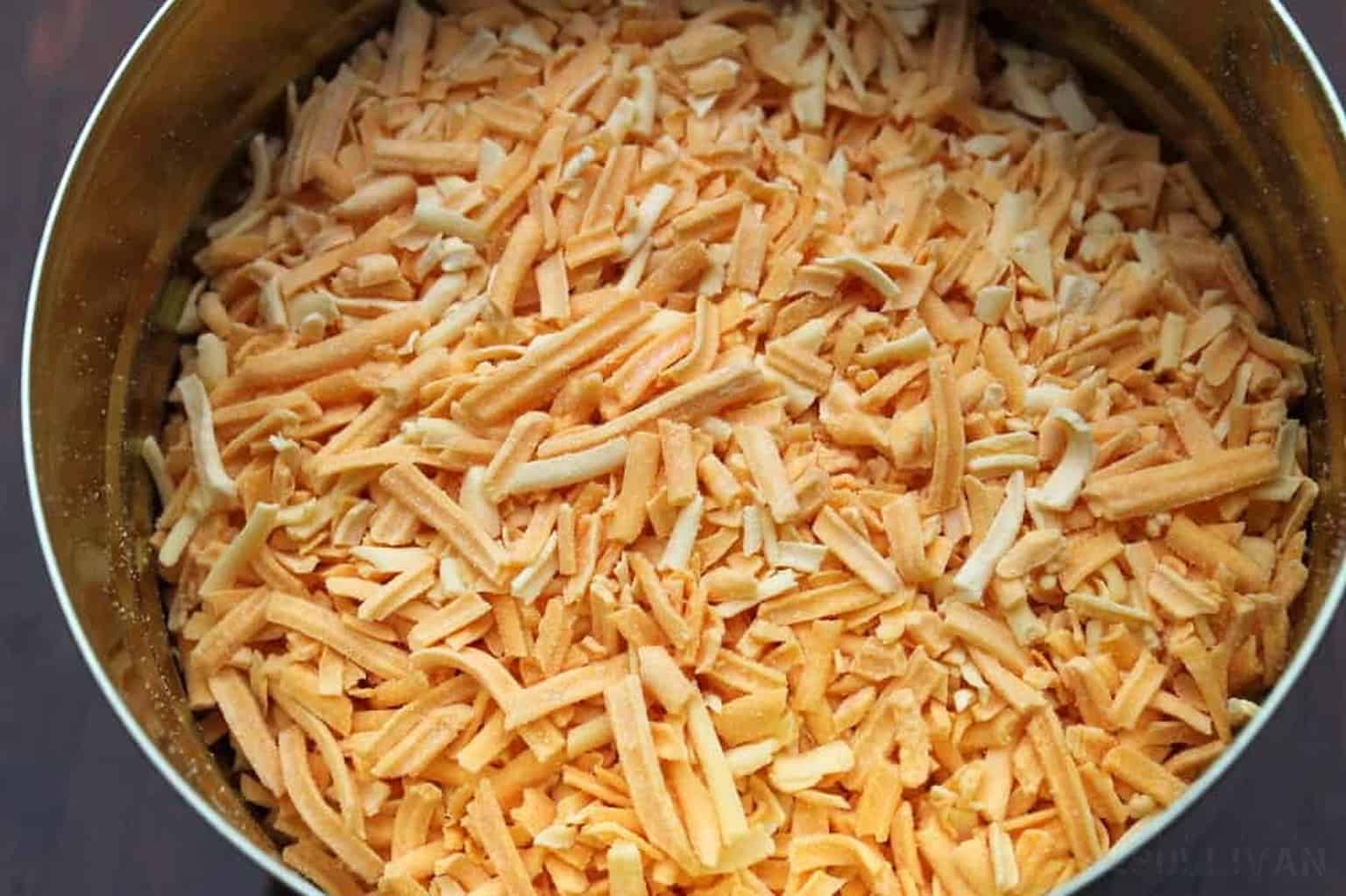
47. Cheese
Freeze-drying cheeses requires a lot of experimentation. Some hard cheeses basically turn into bricks when freeze-dried, while a softer cheeses turn into delightful little crisps if you get the size right. In all cases, it can be done safely and greatly extend the shelf life of your cheese.
48. Sour Cream
You can freeze-dry sour cream much like you can milk. The results sometimes look a little strange, but it is typically safe and effective. If you aren’t adding it dry to a mix, make sure you rehydrate very slowly and sparingly or you’ll thin it down way too much.
49. Yogurt
You can freeze-dry most yogurts in the same way as sour cream above.
50. Buttermilk
Buttermilk is another viable candidate for freeze-drying. Treat it like you would milk.
51. Eggnog
Yes, freeze-dried eggnog can soon be yours to enjoy any time after the holidays have passed. Treat it like milk, as expected.
52. Cottage Cheese
Cottage cheese can also be freeze-dried, though the textural differences throughout means that it might not hold together too well. This is another food that requires a little bit of experimentation with for the best results. Make a thin layer on a flat tray for best results and then portion it out or break it up when the process is complete.
53. Cream Cheese
Cream cheese cut into small cubes or thinner slabs can be freeze-dried. You probably won’t have good results by trying to freeze-dry a big block right out of the package. Note that cream cheese “whips” and cream cheese made with other novelty ingredients might likewise be problematic.
Other Foods
54. Eggs
Another entry on our list that is hard to believe, you can freeze-dry eggs raw or cooked. The easiest way to freeze-dry eggs, though, is scrambled: they have the perfect consistency for the operation.
55. Pasta
You can freeze-dry homemade fresh pasta for long-term storage. Lay it out flat on the tray in a single layer and let it rip.
56. Rice
Rice is already a long-lasting staple, but freeze-dried rice can go even longer and usually proves to be more pest-resistant. Freeze-drying brown rice can greatly extend its life in storage, an application where white rice usually has the edge.
57. Pies
I know it sounds unbelievable, but you can freeze-dry pies! I would point out that you’ll have the best results the denser and more uniform the pie is, and be sure to cut it into smaller slices to speed things up.
58. Cookies
Cookies turn into extra crispy morsels when freeze-dried, and are the perfect preserved sweet snacks for the long term.
59. Juices
Another crazy idea, but one that can work surprisingly well. You can dehydrate pretty much any fruit juice you can think of. Consider putting it into pre-portioned trays for best results and to help prevent mess.
60. Smoothies
Like fruit juices, smoothie mixes can also be freeze-dried safely.
61. Pizza
You mean like a whole slice of pizza? Yes, yes I do. You’ll need to experiment with the timing to make sure the crust and all the toppings are totally dried but it works better than you might think.
62. Dips
Many kinds of dip can be dehydrated, particularly those with a dairy base.
63-64. Soups and Stews
From the most basic soup to the hardest stew, it is possible to freeze-dry it.
65. Casseroles
Considering all the varied ingredients that are in your typical casserole, it might seem like they are a bad option for freeze-drying but most work surprisingly well.
66-67. Hashes and Scrambles
From scrambled eggs with all the fixings to loaded and covered hash browns, foods like this it can be mashed flat and spread out on a tray are very good, if unusual, candidates for freeze-drying.
68. Candy
Most soft and gummy candies can be freeze-dried for greater shelf life. Hard candies, as one would expect, don’t see much benefit.
69. Dogfood
We cannot forget about our furry friends. Dog and cat food can be freeze-dried to greatly extend itself life, and this is the perfect way to keep from losing any that you buy in bulk.
12 Things You Cannot Freeze-dry
Not all foods, sadly, are made for the freeze-dryer. This includes some common items and even some staples that you would expect to work well.
Note that it might be possible, and the strictest sense, to make the following foods work in your freeze-dryer but the process is usually prone to failure or just exceedingly difficult to pull off.
1. Butter
Butter is simply too fatty to be reliably and safely freeze-dried with your typical home unit.
2. Peanut Butter
Peanut butter is very fatty and very oily, two things that totally disqualified from freeze-drying.
3-5. Preserves, Jams, and Jellies
The consistency and extreme sugar content of preserves, jams, and jellies mean that they do not freeze-dry well.
6. Honey
Honey simply cannot be freeze-dried. Sorry!
7. Syrup
Syrup, like honey, cannot be freeze-dried thanks to its consistency and sugar content.
8. Pure Chocolate
Pure chocolate and cocoa cannot be freeze-dried due to the oil content.
9. Mayonnaise
You can probably see where this is going. Mayo is just too oily for freeze-drying.
10. Alcohol
It is again technically possible to freeze-dry alcohol, but it is highly unlikely you’ll be able to pull it off with your at-home freeze-drying appliance.
11. Nuts
Nuts have fats and oils that make it difficult to reliably freeze-dry them completely without the risk of later spoilage from rancidity.
12. Sodas
Sodas, colas, and other carbonated beverages just do not work in the freeze-dryer. It will leave behind a sticky, tarry mess and not much else.
Freeze-dry for Long Shelf-Life
Freeze-drying is a great way to get the very best shelf life out of most of the foods that you enjoy, but it doesn’t work on every food. Aside from a few holdouts, though, a freeze-dryer is one of the very best investments you can make toward your food storage plan. Use this list and pick out your favorites today.
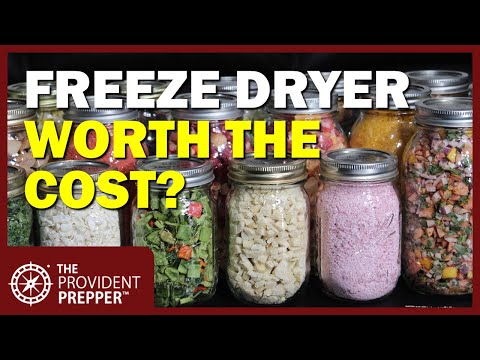
FAQ
No, not really. The processes are similar, resulting in food with very low moisture content but most freeze-dryers remove up to 99% of moisture from food, whereas a dehydrator removes between 90-95%.
Yes! Home freeze-dryers are pricey but financially viable. Though large industrial units are more effective, at home units can freeze-dry almost any food you could want.

The post 69 Things You Can Freeze-Dry and 12 Things You Cannot appeared first on Survival Sullivan.

